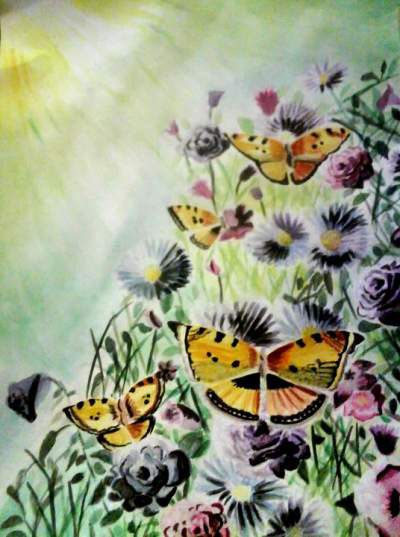All Nonfiction
- Bullying
- Books
- Academic
- Author Interviews
- Celebrity interviews
- College Articles
- College Essays
- Educator of the Year
- Heroes
- Interviews
- Memoir
- Personal Experience
- Sports
- Travel & Culture
All Opinions
- Bullying
- Current Events / Politics
- Discrimination
- Drugs / Alcohol / Smoking
- Entertainment / Celebrities
- Environment
- Love / Relationships
- Movies / Music / TV
- Pop Culture / Trends
- School / College
- Social Issues / Civics
- Spirituality / Religion
- Sports / Hobbies
All Hot Topics
- Bullying
- Community Service
- Environment
- Health
- Letters to the Editor
- Pride & Prejudice
- What Matters
- Back
Summer Guide
- Program Links
- Program Reviews
- Back
College Guide
- College Links
- College Reviews
- College Essays
- College Articles
- Back
How Shakespeare Develops the Theme in The Tragedy of Romeo and Juliet
Disloyalty. Fights. Animosity. These three words describe Shakespeare’s characters Romeo, Juliet, and their fighting families when throughout the theme of the play. Their feud has going on for a long time and nobody knew why it started in the first place. The theme that is recurring throughout the entire play is “Feuds and vengeance bring tragedy,” the author develops the theme throughout the dialogue between characters, the plot of the death scenes of the play, and the foreshadowing vengeance fate of Romeo and Juliet.
Throughout the entire play, dialogue plays a big part in the feud between the Capulets and the Montagues. In the Tragedy of Romeo and Juliet Mercutio dies, cursing both the Montagues and the Capulets: “A plague o’ both your houses” (Shakespeare III:i:87), and still pouring forth his wild witticisms: “Ask for me tomorrow, and / you shall find me a grave man” (Shakespeare III:i:93–94). “O, I am fortune’s fool!” and flees (Shakespeare III:i:131). This shows the feuds of both houses because if they were not fighting Mercutio would be alive. In the prologue of the play, it states,” Two households, both alike in dignity, In fair Verona, where we lay our scene, From ancient grudge break to new mutiny, Where civil blood makes civil hands unclean”(Shakespeare:prologue: 1-4). This shows the feud has been going on for many years and no one knows why since they have held a grudge for so long.
Also in the entire play, the theme is developed throughout the plot of the entire play. Romeo speaks to Juliet of his intention to spend eternity with her, describing himself as shaking “the yoke of inauspicious stars / From this world-wearied flesh” (Shakespeare V:iii:111–112). He kisses Juliet, drinks the poison, kisses Juliet again, and dies. This shows that they both loved each other enough to die for each other. The tragic flaw of this part of the play is Romeo didn’t know that Juliet was still alive because the vial she drank made her appear dead.
Also, it states in the play it foreshadows Romeo and Juliet's fate throughout the entire play. For example, the Prologue points out that Romeo and Juliet have fate against them. It says that their love is "death-marked," (Shakespeare:prologue:9). They have no control over what happens. It is their misfortune that leads to the sorrowful and tragic ending of the play. Before Romeo enters the house of the Capulets, he speaks about an unknown danger "hanging in the stars." This notion of events expected to occur being written in the stars explains how life is predetermined by fate. Romeo senses that something bad may occur, based on his fate.
The theme that is recurring throughout the entire play is “Feuds and vengeance bring tragedy,” this theme is developed throughout the dialogue between characters, the plot of the play, and the foreshadowing of the vengeance fate of Romeo and Juliet. Romeo and Juliet conclude with strong condemnation of the characters’ actions. In the closing family portrait, the Capulets and the Montagues gather around the tomb to witness the consequences of their absurd conflict. Even if you don’t believe that Romeo and Juliet could have saved themselves, you must admit that their families’ blind hatred caused the situation, not the gods. As the Prince notes, even “the sun for sorrow will not show his head” on that tragic day even the heavens are pained at the human foolishness they see below.
Similar Articles
JOIN THE DISCUSSION
This article has 0 comments.

